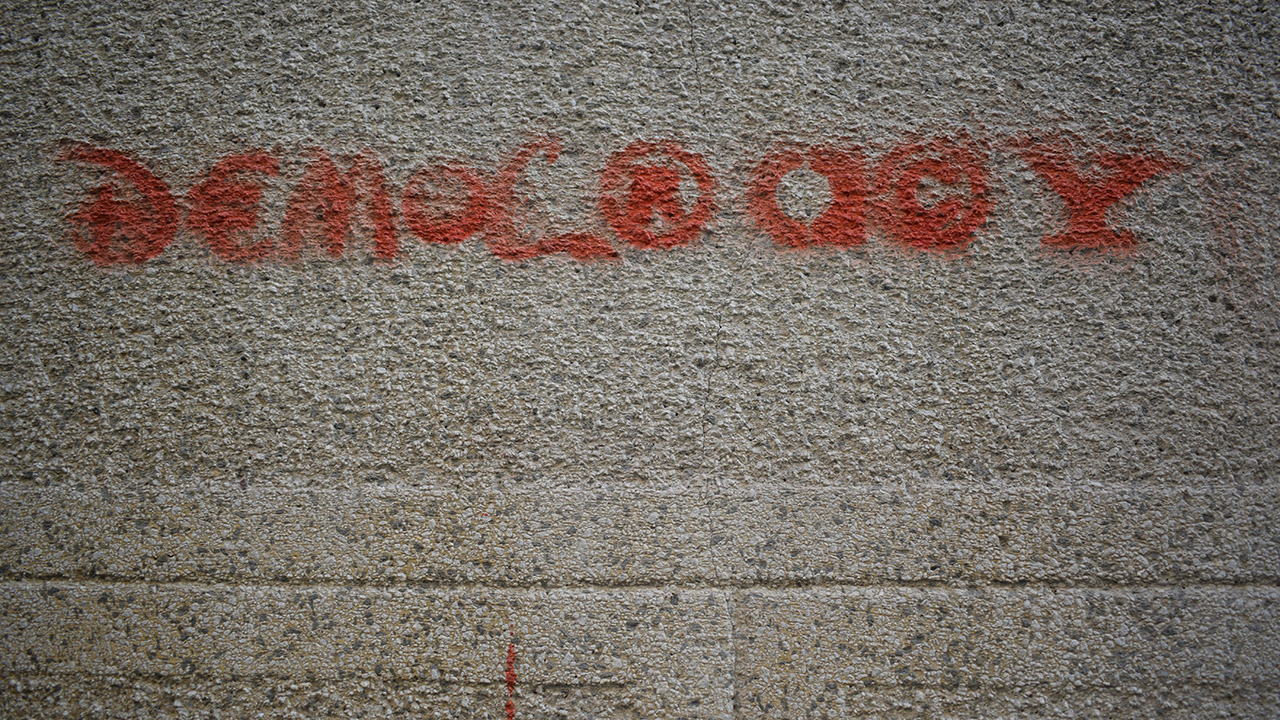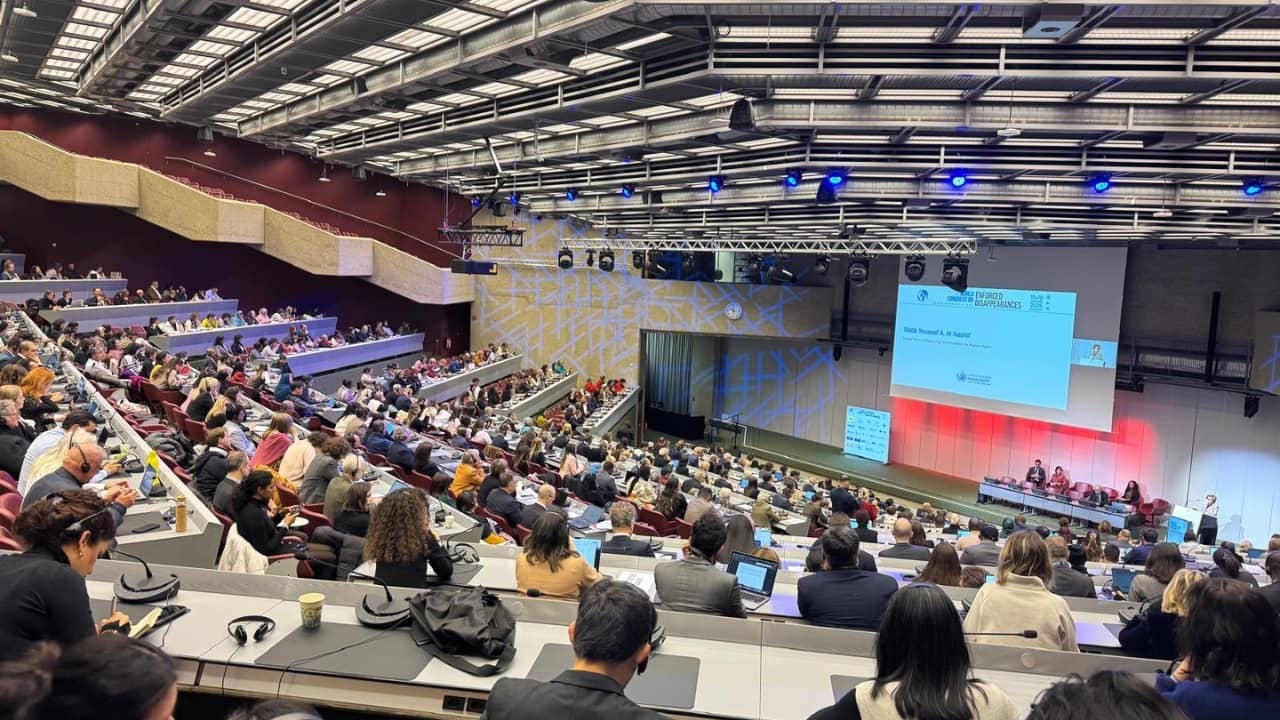On 4 November 2021, Parliamentarians for Global Action held a closed Working Group where Members of Parliament (MPs), former ambassadors, women’s rights activists, experts, civil society representatives and academics strategically discussed how to prevent and address violent extremism and the further commission of human rights violations, while supporting Afghan people, especially women and girls.
Hon. Kasthuri Patto, MP (Malaysia) & Deputy-Convenor of the International Law & Human Rights Program
Hon. Patto emphasized the importance of acting promptly to prevent extremists from taking over the scene, given that atrocities committed in the name of race, culture or religion could happen anytime and anywhere in the world. Hon. Patto therefore raised the importance of extending the reach of these conversations to the public which is, in reality, often the actual target of these discussions. As one of the means, she suggested to translate the notes and outcomes of these events in the languages understandable by all parties involved. Putting her words into actions, Hon. Patto proposed to translate the outcomes of this meeting in Malay and to share it with her government.
PGA supports Hon. Patto’s initiatives and strongly encourages MPs to share the message and outcomes of these events and discussions, in order to raise the awareness of their colleagues, as well as the citizens on the initiatives undertaken to support Afghan people and include them in the ongoing conversations.
Hon. Ali Ehsassi MP (Canada)
Since this Working Group is a continuum of the first Roundtable that was held on 15 September, Hon. Ehsassi opened the discussion with an overview of critical action points identified during the previous event, including:
- to prioritize justice and accountability;
- to provide humanitarian aids directly to the people;
- to use public fora to condemn the Taliban;
- to create groups of like-minded colleagues in Parliament to fight against impunity.
Addressing the MPs, Hon. Ehsassi stressed the importance of prioritizing the urgent evacuation of Afghan civilians and asking their governments to put in place special immigration programmes. Setting an example of good practice, Hon. Ehsassi referred to Canada’s pledge to welcome 40 000 Afghan refugees by 2023 and the recent programme it established to facilitate their entry.
PGA calls on MPs to use their prerogatives and to request their governments to urgently put in place special immigration programmes tailored to adequately respond to the humanitarian crisis in Afghanistan.
The long-term needs of Afghanistan will not be met, nor will the longer- and short-term concerns related to terrorism be addressed, if we do not have women MPs and other human rights activists safe and aliveSen. Marilou McPheran MP (Canada)
Sen. Marilou McPheran MP (Canada), shared with the participants some results of the inter-Parliamentary work she has been involved in since the fall of Kabul in August 2021 to support the evacuations of women MPs and human rights activists. While welcoming her country’s willingness to receive 40 000 Afghans, she expressed disappointment that this promise is still far from being met. The biggest barrier preventing the successful evacuation is related to a logistical matter- getting the visas as the arrival permission upon landing is contingent on the evacuees having visa. As such, she urged the MPs and officials in charge to consider this issue with the highest urgency as the window of opportunity for successful evacuations is closing.
PGA echoes Sen. McPheran and urges MPs to pay attention to the need for humanitarian visas or special permissions from ministers, to clearly identify the names of individuals in need, and to bring that issue as a priority in parliamentary sessions.
Hon. Shinkai Karokhail, former MP (Afghanistan) & Ambassador of Afghanistan to Canada
According to Hon. Karokhail, the first and biggest mistake made by the international community was the failure to listen to the Afghan people, to discard civil society, political activists, women politicians, women activists, and to listen instead to the war lords. The second mistake was to support Pakistan without holding it accountable for the assistance it allegedly provided to the Taliban. The third mistake was the withdrawal of foreign troops from Afghanistan without any preparation. The U.S. failed its responsibility to prepare the defense sector in Afghanistan and to ensure that they could take full responsibility of their duties once the troops had left the country. The fourth mistake was the absence of an inclusive peace process since Afghan women were rejected and the Afghan government was not even a party to it. Lastly, the fifth mistake was for the international community to believe that the Taliban had changed after 20 years.
In light of this, Hon. Karokhail believes that the international community should turn toward the future and prioritize the education of the next generation of Afghan women and girls.
PGA calls on MPs to relocate some public funds to directly support UNICEF and/or other national or regional programmes which could effectively assist the education sector in Afghanistan, especially for women and girls.
Professor Mohamed Elewa Badar, Professor of Comparative and International Criminal Law & Islamic Law at Northumbria University
Prof. Badar’s provided concrete examples demonstrating that the Taliban have never rightfully applied Islamic Law with their ideology being rather an extremist and distorted version of Islamic Law. The harsh penalties used against their opponents, to scare and silence them, coupled with the lack of respect for any judicial procedures or evidentiary rules, demonstrate the deliberate misinterpretation of Islamic Law. Prof. Badar warned the international community that Taliban were using the education sector to indoctrinate the young generation. To overcome that the ideological “brainwashing” of the future generation, Prof. Badar emphasised the importance of the education and called on Islamic law scholars and academics to engage a discussion with Taliban to explain clearly why their interpretation of Islam is wrong and a fabricated version of Islamic law.
PGA calls on MPs from Muslim-majority States, as well as on “Islamic organisations” (including the Organisation of Islamic Cooperation) to publicly condemn the violent and extremist wrongful interpretation of Islam by the Taliban and educate the public on Islamic Law, as taught by reputable and authoritative Islamic scholars.
Hon. Mariam Solaimankhail, MP (Afghanistan), PGA Member
Appalled by the shutting down of girls schools, the sudden unemployment of ten of thousands of women, the looming economic and humanitarian crisis, Hon. Solaimankhail reminded participants that the human rights violations committed in Afghanistan today- with repercussions on the entire world- are part neither of the Afghan’s culture nor Islam.
I plea all MPs in the world to highlight the ongoing humanitarian crisis. People in Afghanistan need our help. We must find ways to engage directly with the people of Afghanistan. The aid must not be directed to the Taliban since it will be used for financing global terrorism.
According to Hon. Solaimankhail, Taliban must be held accountable for their false promises of general amnesties- through the provision of amnesty cards- to all Government workers. Despite the pledges to the contrary, those “protected” by amnesty cards have been disappearing with their bodies being found afterwards. Hon. Solaimankhail further stressed that it was primarily the role of Afghan people to choose and recognize their own government before anyone else in the world. No external recognition could happen before an election, or a ground council of the elders, effectively took place.
PGA therefore urges the international community to support local organization to monitor the giving of amnesty cards and to ensure people who are receiving them are safe and protected.
PGA further stresses that until a government is recognized by the Afghan people, all humanitarian aids should be distributed directly to the people and not the Taliban.
Ms. Rukhsar Azamee, ABILA Media Officer, former producer for Tolo News channel in Afghanistan & former member of the PGA Secretariat
Lastly, Ms. Azamee warned the participants that the recognition of the Taliban regime would set a dangerous precedent and encourage other international extremist or terrorist groups to follow the example. To send a message to terrorist groups that no violations will go unpunished, Ms. Azamee urged the International Criminal Court to conduct expedited investigations and to support local organisations to gather and preserve evidence of international crimes. Concerned by the fact that almost 30% of Afghan people are at high risk of food insecurity, Ms. Azamee called the international community to assist humanitarian organizations, and to build the capacity of smaller non-profit organizations working in remote areas to keep the inflow of humanitarian aid in all the country.
Finally, focusing on the evacuation process of Afghan people notably by the U.S., Ms. Azamee noted that the fees of $575 per person made it impossible for most Afghans – as the average daily income in the country is $2 - to be able to use this opportunity.
PGA fully supports Ms. Azamee’s plea for an exceptional waiver of the fees for Afghan refugees who do not have the means to pay for it and who urgently need to be relocated.
Strategic session
In addition to the very concrete actions that were raised by the panelists, the strategic session gave rise to other important action points, including:
- Increase the participation and visibility of Afghan women and youth in international conferences, events and discussions.
- Request the UN to organize a high-level international conference on the future of Afghanistan, the role of women and the importance of an inclusive government.
- Muslim countries should put pressure on the Organisation of Islamic Cooperation to take a stance and to condemn the Taliban’s interpretation of Islam.
- Include Afghan women in the discussions at the UN-level, especially in relation to counterterrorism and the prevention of violent extremism. More specifically, include women in the UN higher-level Working Group on counterterrorism. Afghan women can share important information from their context and local culture which can be used to fight against that threat.
- Remind all national, regional and international courts to avoid one-sided prosecution or to deliberately focus on one group of the conflict.
- Allocate more resources to the Office of the Prosecutor of the International Criminal Court during the upcoming Assembly of States Parties in December 2021 to make sure it can carry a full investigation over all the actors involved and who allegedly committed crimes in Afghanistan.
- Closely monitor the news to make sure that all important events or human rights violations are documented and known by the international community, despite the current censorship imposed by the Taliban regime
- Request all MPs to send letters and make phone calls to the personnel processing the requests for humanitarian visas in their country to facilitate the evacuations of the Afghan people, including of women MPs or activists.
- Request the allocation of additional resources to ensure visa applications can be processed urgently and in a timely manner.
- Despite the media fatigue, legislators must continue to spread the message before their government to encourage further and more complex efforts on the situation in Afghanistan.
PGA pledges to continue working towards the preservation of the values enshrined in the UN Charter, at the national, regional and international level, and commits to facilitating the improvement of the human rights and humanitarian situations of the Afghan population.






